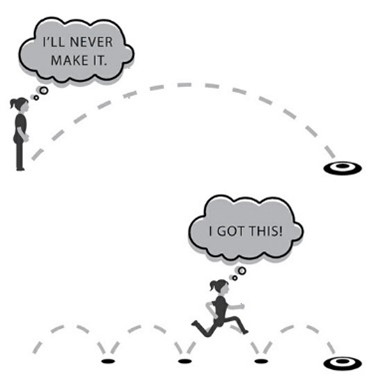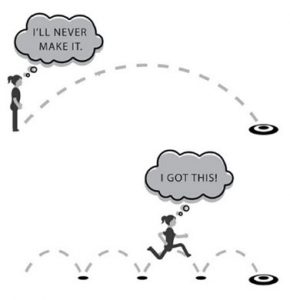TCRCE is embarking on a large scale collective efficacy project. This is intended to bring coherence to a number of initiatives happening within our Regional Centre for Education. In our schools (and regionally) we are doing many things to improve student achievement and well-being. The goal is to align them in a way that takes the ‘randomness’ out of our actions. Everyone is busy and working hard, but that’s not enough. We also need to make sure our actions are deliberate and leading to the results we want for our students. When people feel that their actions are aligned and are making a difference, collective efficacy takes hold.
There are plenty of related definitions of collective efficacy. I am defining our collective efficacy as TCRCE’s shared belief in its capability to plan and follow through on actions required to improve student achievement and wellbeing. When we feel competent and confident in our ability to help students and each other, we create hope. This feeling of competency/confidence/hope will strengthen our motivation to collaborate, create additional momentum, and encourage future innovation within TCRCE. To me, that is what collective efficacy is all about.
As this is the first ‘official’ post, I wanted to back up and start with the idea of incremental progress. This is the belief that small, manageable, focused steps will result in growth over time. There is an image I often share that really exemplifies this for me:
I introduced this image when I first got to TCRCE, and we used it to start planning how we were going to map out the work. Small, manageable pieces. One step at a time. We had to plan with the end in mind, but also plan in a way that allowed us to take a number of small steps. Each small step was intended to create momentum towards the end goal. I was recently listening to a podcast where it was stated that your end goal should create some discomfort, but you immediate next step should not. That really resonated with me, and refocused me on the visual above.
One initial practice we did as a TCRCE leadership group (principals, vice principals, and regional staff) was to do a collaborative book study of Dweck’s (2008) Mindset. In the Spring of 2019, leaders were asked to read a chapter each week. There was an accompanying chapter prompt. These prompts included questions like “Think about one specific time in your life where you faced significant adversity in completing something, stuck with it through the hard times, persevered, and succeeded. What were the specifics? What actions did you take?”.
This was the ‘pre-work’ to the System Improvement Plan we were about to create. The book study was intended to create a foundational belief that – together- we could focus on something, align our work, and support each other in making incremental progress towards our goal. As Dweck (2008) told us, our results could be improved through effort. Every theory has some holes, and a theory of ‘growth mindset’ is not perfect. However, it provided an opportunity to consider how deliberate effort could positively impact student achievement and wellbeing.
The lasting impact of the book study was the evolving belief that – through consistent, deliberate effort over time – we were capable of improving student achievement and well-being. This has become a central tenet of our work, and something we reflect on.
Hyatt, M. (2018). Your Best Year Ever. Green Initiative Press.




